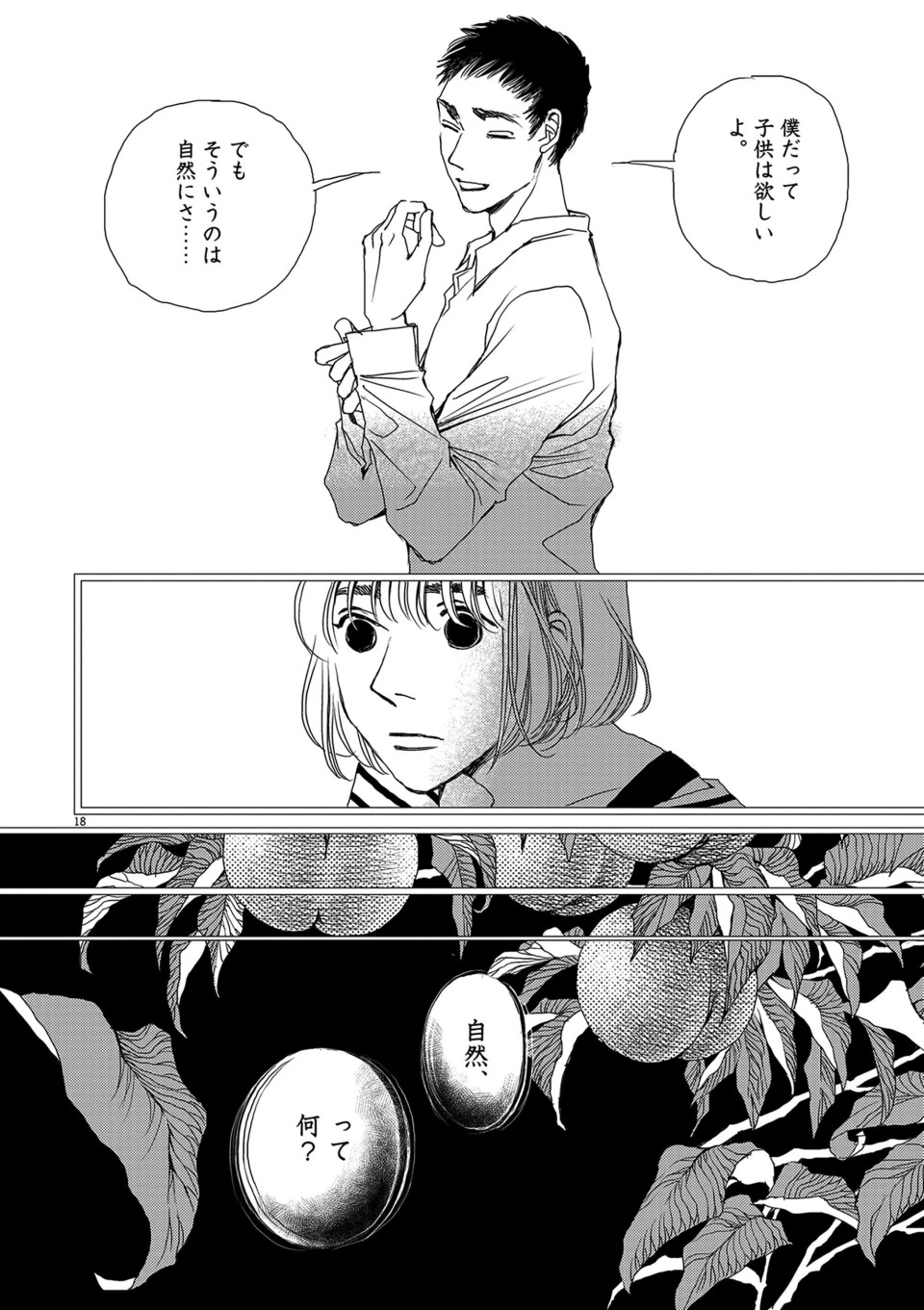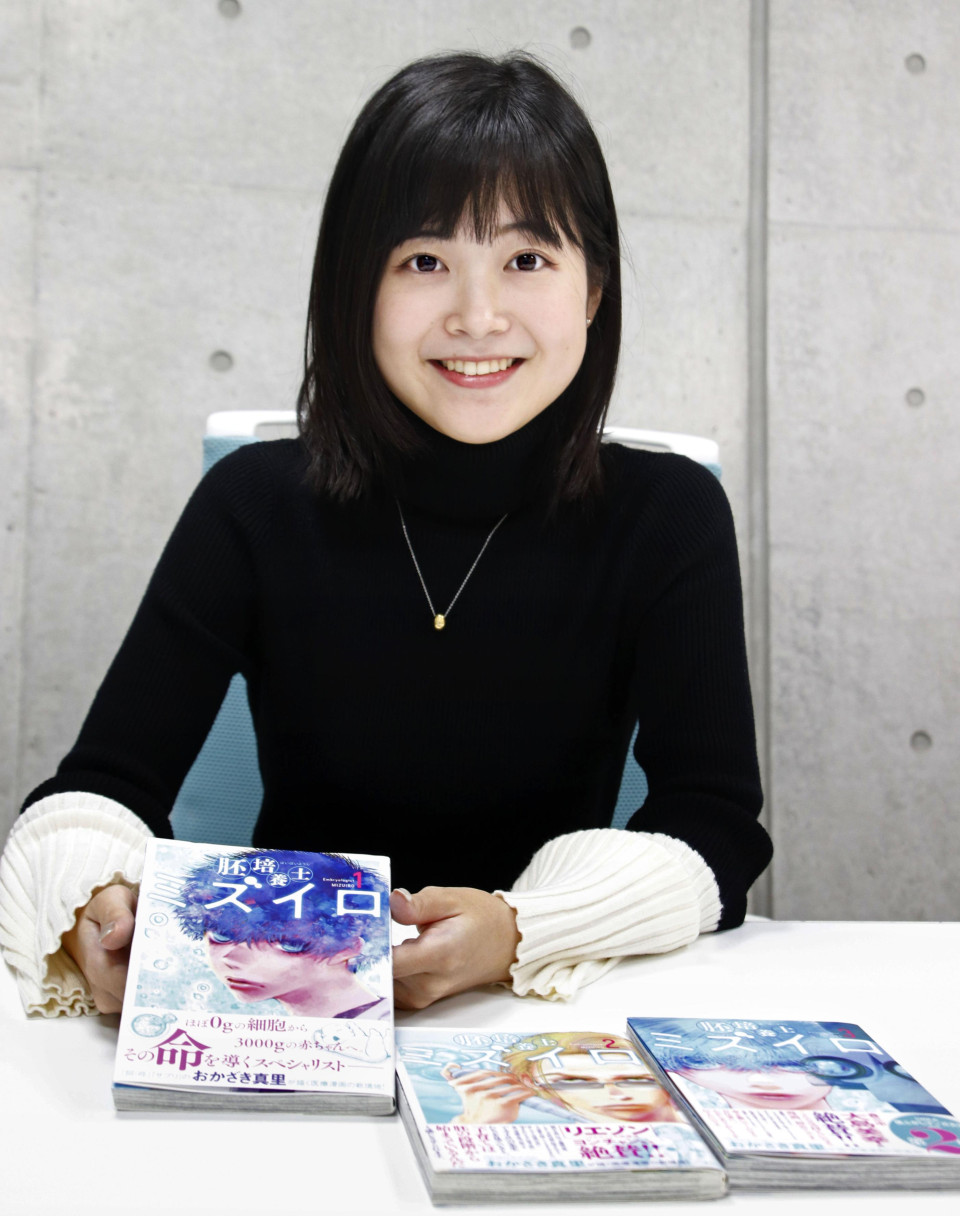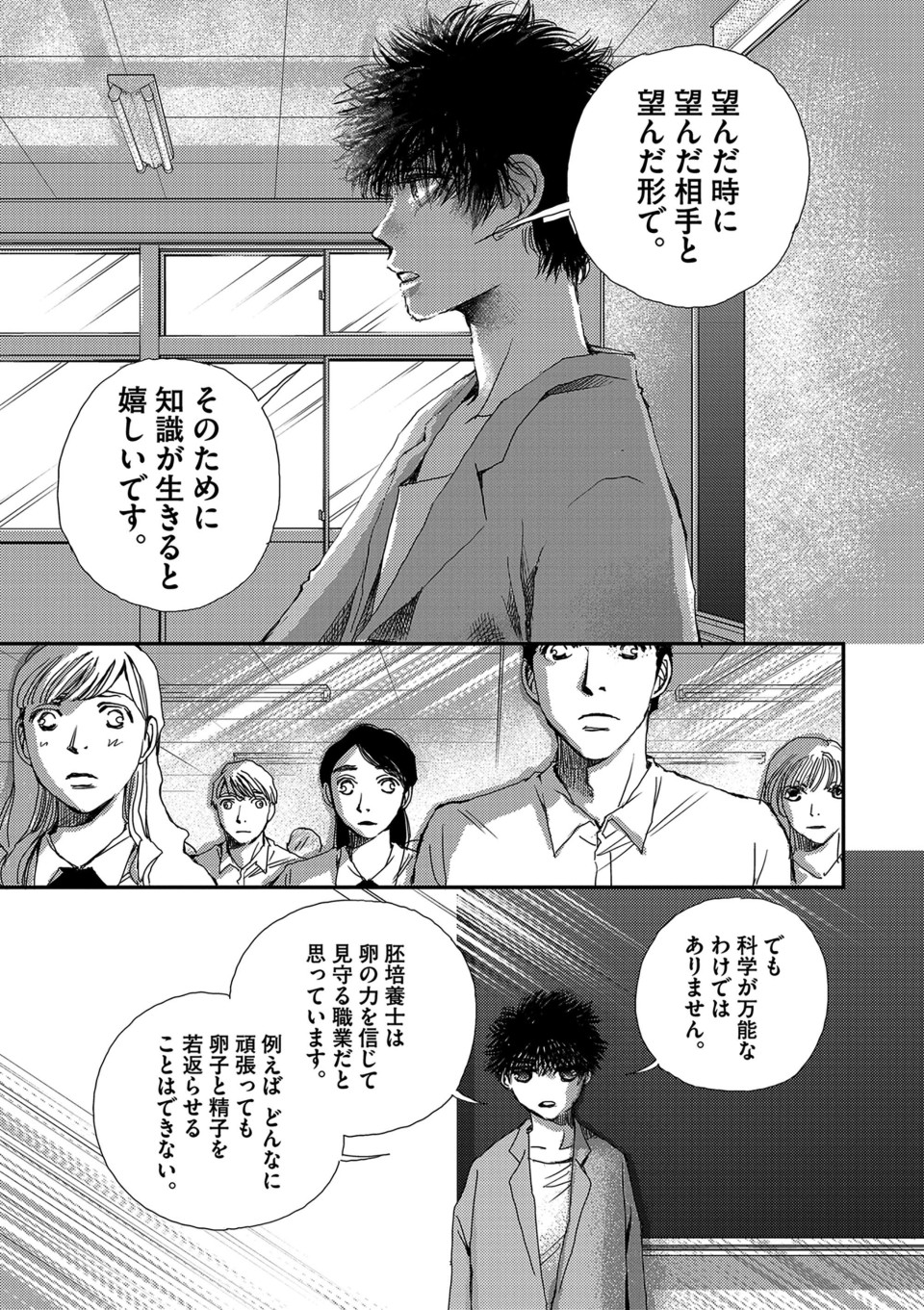The issue of infertility can be contentious, but a manga in Japan is nonetheless providing a context for it to gain wider recognition while touching the hearts of many readers through a popular comic magazine.
The delicate task of nurturing life in a lab is the central thesis of the serial about the work of embryologists, which is run by the weekly Big Comic Spirits published by Shogakukan Inc. and targeted mostly at young men.
Titled "Haibaiyoshi Mizuiro (Light Blue Embryologist)," the series revolves around a narrative that follows interactions between aspiring parents who visit a fertility clinic and the embryologist who is helping them.

Its focus occasionally shifts to other cases involving embryologists' work, such as egg freezing for a high school girl with cancer and azoospermia, a condition in which there are no sperm present in the male ejaculate.
The manga touches on how couples differ in their view of fertility treatments, conflicts about the procedures, and grumbling about what is or is not considered "natural pregnancy."
Mari Okazaki, 56, the author of the series that started in October last year said, "I want to make this a manga that can be read easily not only by those who are undergoing fertility treatments but also by the people close to them."
The sensitive portrayal of couples has resonated with readers of the series, which thus far has three volumes.
The main character, an embryologist named Ayumu Mizusawa who works at the clinic, is looked up to by her colleagues for her outstanding skills and natural sense of humor. Her well-honed skills allow her to view a fertilized egg under a microscope with confidence to achieve pregnancies.
But the real protagonists are the people receiving treatments. Although their goals may be the same, their circumstances are different. A common scene is the uncooperative husband, who after finally undergoing testing at the fertility clinic is upset to learn that the issue is with him having no sperm.
According to the Japan Society of Obstetrics and Gynecology, about 70,000 children were born through in-vitro fertilization in 2021, or about one in 11.6 of the approximately 811,000 births that year. Japan's first IVF baby was born on Oct. 14, 1983, and over the last four decades, the ratio of IVF babies has continued to rise.
The manga was the brainchild of Ayako Shimazaki, 29, a pharmacy graduate and the chief editor of the series.
Shimazaki learned about the work of embryologists in a lecture during college and broached the idea to Okazaki, who was looking for another project after completing her previous work.
"It is an important job that involves the beginning of life. It was a project that I had been warming up to," Shimazaki said.

For Okazaki, who had depicted the love lives of working women among other topics in her previous work, the word and profession embryologist was new.
"I thought, I'd like to try this," she said, adding she received encouragement to take on the project from her daughter in college.
Embryologists are responsible for culturing eggs collected by physicians, testing sperm, and cryopreserving fertilized eggs. They must have dexterous hands to perform intracytoplasmic sperm injections, or ICSI, in which they inject sperm into an egg while looking through a microscope. Although the profession is accredited by two academic societies, there is no national certification.
For the series, Okazaki and her team visited several clinics and interviewed about 20 couples. They took thousands of photographs. Although the manga's characters are original, each episode is interspersed with stories of real couples.
"I was in the lab all day and was amazed at the fast and efficient movements of the embryologists," Okazaki said.
The manga also depicts an episode in which an actress in her 40s, who visits the clinic despite being torn between her profession and treatments, is unable to conceive and eventually gives up. This is sometimes a reality people must face, suggested Okazaki. "Life goes on even beyond giving up. I want to deliver words that will retain meaning for people."

Previously, there was a government subsidy program that provided 300,000 yen ($2,050) per IVF treatment. In April 2022, fertility treatments were expanded to public insurance and include couples in common law marriages. IVF and ICSI are subject to certain conditions, such as that the woman must be under 43 years of age at the start of treatments.
According to a recent survey conducted by the National Center for Child Health and Development, among others, nearly 30 percent of women undergoing advanced infertility treatments such as IVF and ICSI feel highly stressed by the "endless treatments," while 70 percent also experience some type of depression.
The manga series has received critical acclaim with comments from readers such as husbands admitting to being completely oblivious to what their wives must go through on the examination table, and others saying it drove them to learn.
Okazaki said she was glad the manga made a favorable impression on her teenage son. "He told me that my manga was his favorite," she said.
Related coverage:
FEATURE: Married manga artists tell story about life with disability
FEATURE: Locals use big-city thinking to bring "onsen" town back from brink
 By Kayo Terada,
By Kayo Terada,









